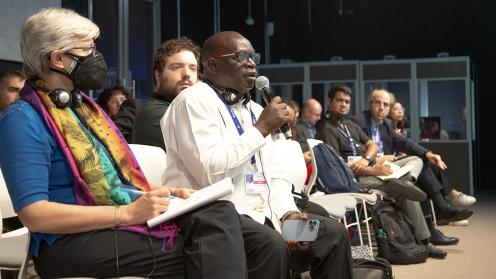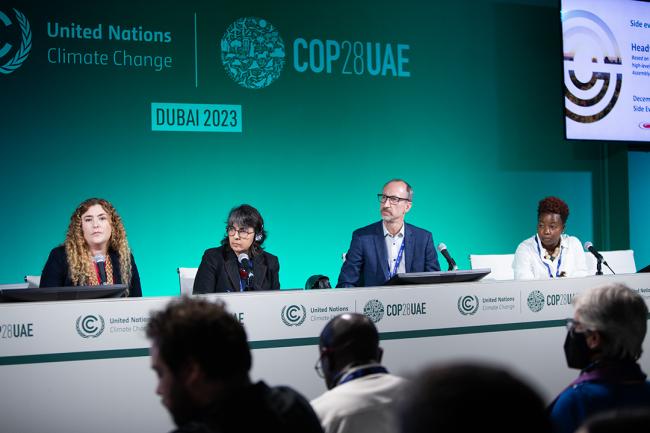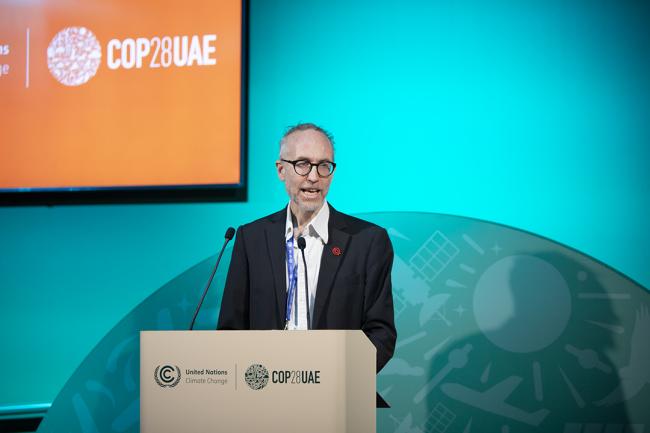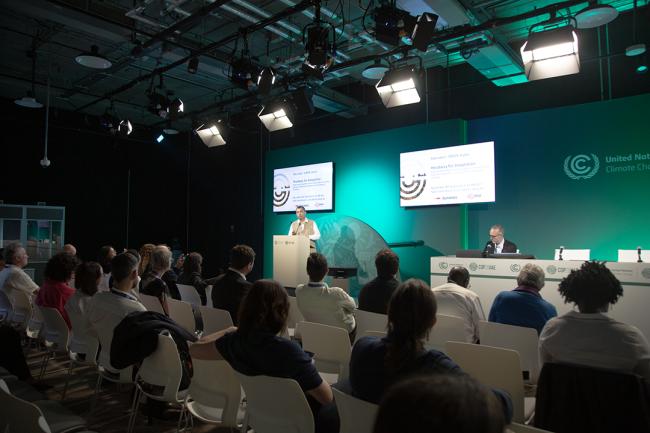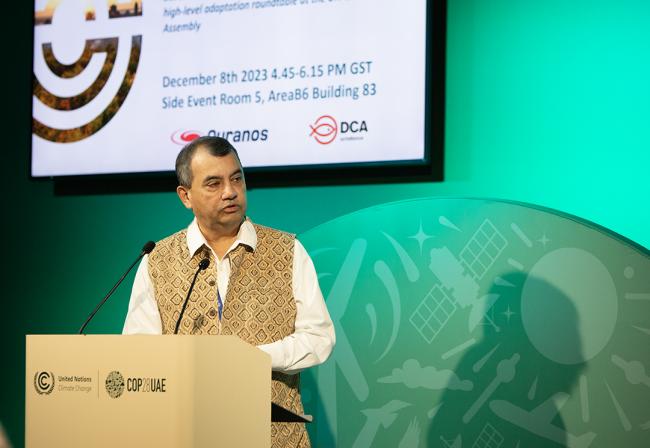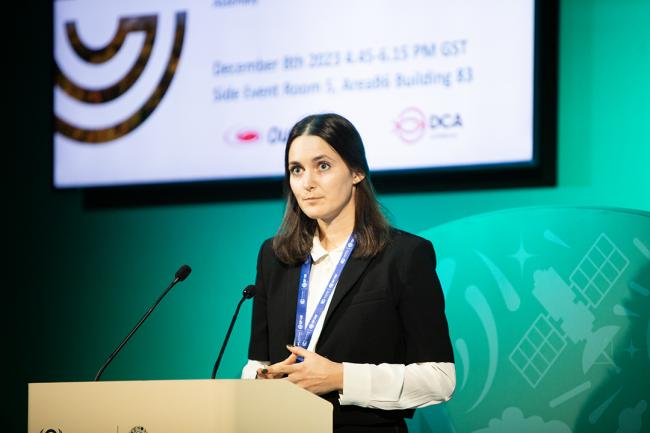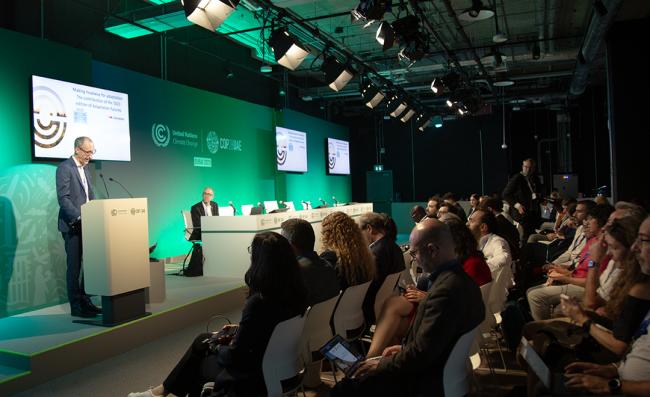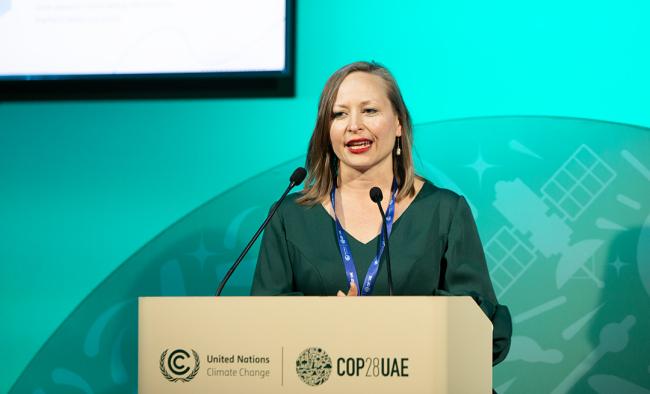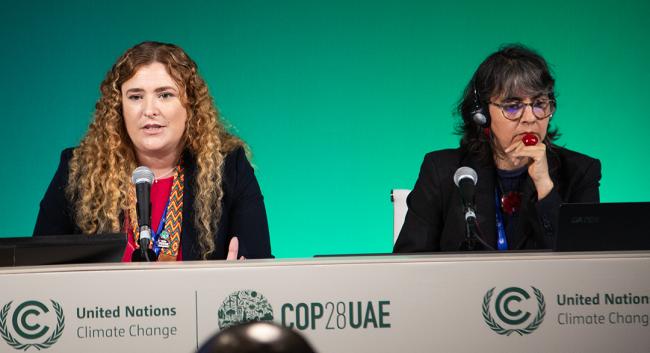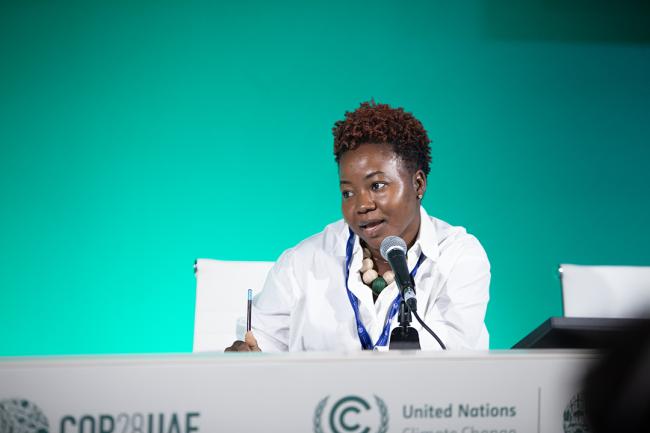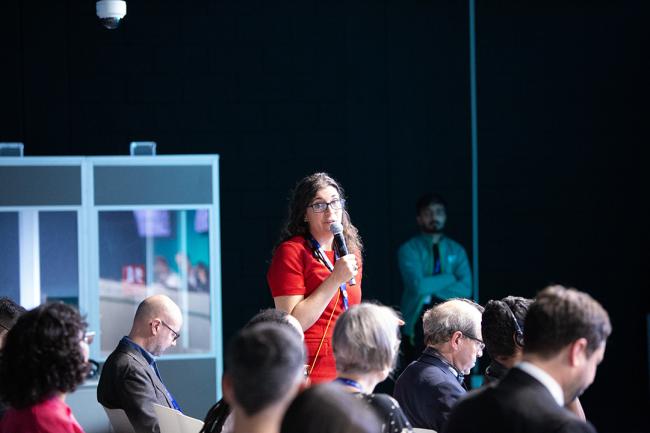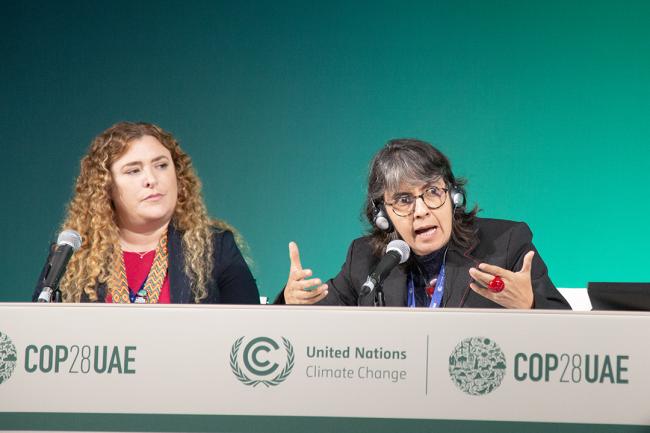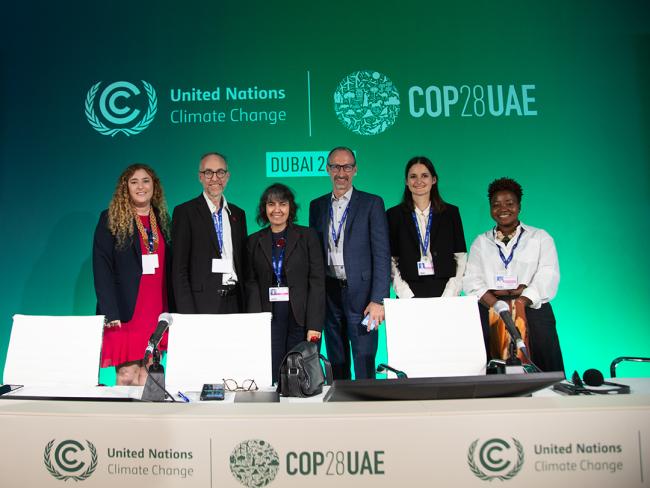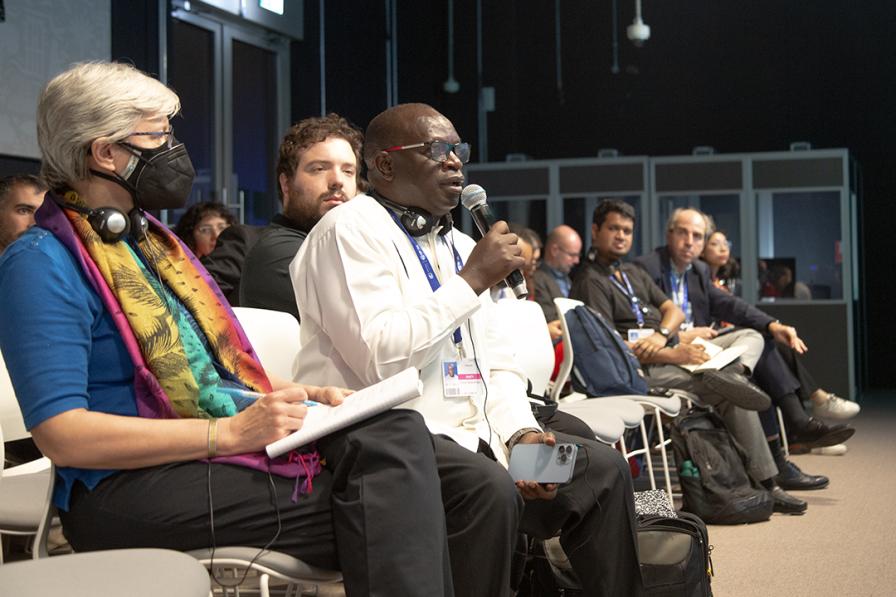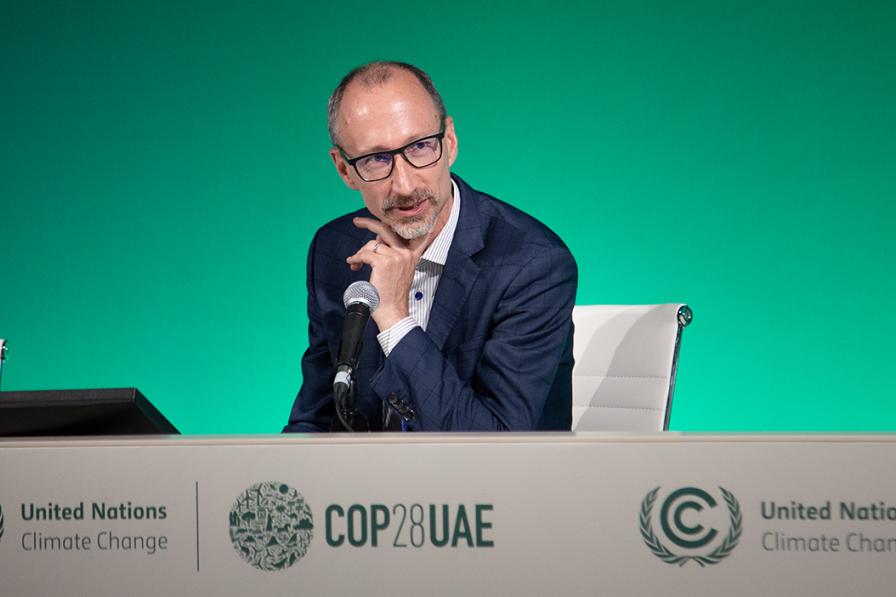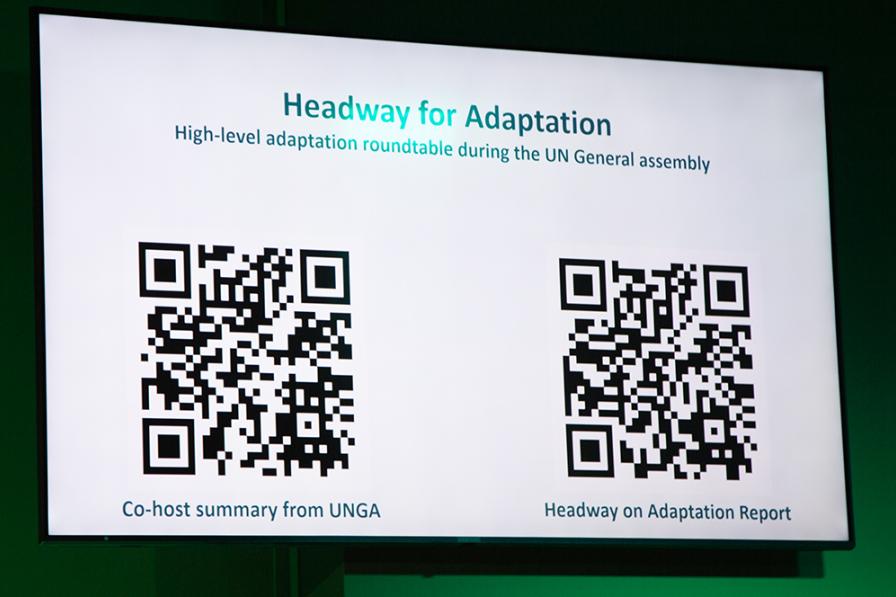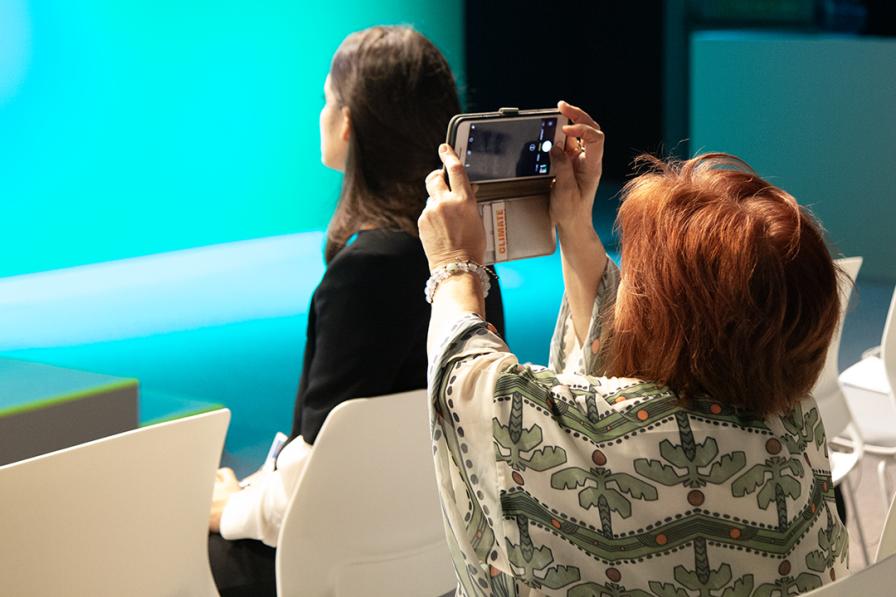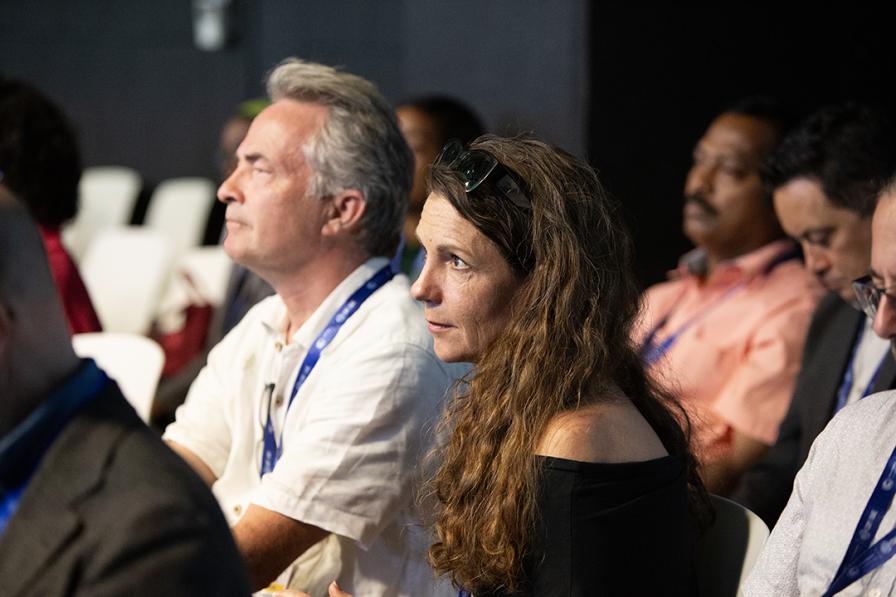About
This event brought key recommendations from The UN General Assembly High-Level Week held in September and the Adaptation Futures Conference that took place in October to COP 28 to amplify increasing calls to support ambitious results for climate adaptation.
Calls for greater support to climate adaptation were the focal point of a range of events in the lead up to COP 28. Organized by DanChurchAid and Ouranos, this event sought to bring messages from two of these moments to COP 28 in support of strong and ambitious results for climate adaptation—the High-level Roundtable Dialogue: Headway for Adaptation, co-hosted by Denmark and Bangladesh, on the sidelines of the UN General Assembly (UNGA) in September 2023 and the Adaptation Futures 2023 conference that took place in October.
Moderator Mattias Söderberg, DanChurchAid, opened the event by acknowledging challenges COP 28 negotiations are facing to obtain suitable outcomes for adaptation, noting poor progress on the Global Stocktake and Global Goal on Adaptation (GGA). He called for discussions on adaptation to be about “people’s lives, survival, and livelihoods.”
Saber Chowdhury, Special Envoy to Prime Minister of Bangladesh for Climate Change, said the COP 28 Presidency emphasized the need for trust and predictability in climate finance at the High-Level Ministerial on Climate Finance held earlier in the day, but that this would be challenging to achieve without clear common definitions and a consensus on desirable global temperature goals. He expressed support for the Loss and Damage Fund operationalised on the first day of COP 28, but cautioned that this may result in a decrease in funds allocated to adaptation, urging that “there cannot be any trade offs” between mitigation, adaptation, and loss and damages in negotiations.
Jette Michelsen, Ministry of Foreign Affairs, Denmark, emphasized that we are at a “critical juncture” and that adaptation finance must be a key priority for climate finance to move forward. She offered takeaways from the High-Level Roundtable Dialogue held on the sidelines of the UNGA, noting its importance as a platform for the exchange of ideas. She emphasized the need to scale up finance by leveraging investment from the private sector, innovative financial mechanisms, and ensuring access to financing at the local level.
Alain Bourque, Executive Director, Ouranos, shared lessons learned from the Adaptation Futures conference, highlighting the importance of collaboration through networks of boundary organizations. A main objective of the conference, he added, was to learn from Indigenous and local knowledge systems and for these voices to be heard in adaptation research, policies, and practices. He also discussed the importance of centering marginalized voices from the global South in discussions around adaptation to support climate justice, equity, diversity, and inclusion.
Johanna Nalau, Griffith University, Australia, argued that a perfect, generalizable indicator for adaptation “does not exist” in the face of the region-specific and layered impacts of climate change, and that we rather need to embrace different perspectives on what a well adapted community looks like. She reflected on the question of “who should be making decisions for whom” on adaptation, noting that financial institutions and private sector actors are positioning themselves to make decisions on behalf of communities.
The event concluded with a panel discussion on the implications of outcomes of and recommendations from the two events for negotiations at COP 28. Pilar Bueno Rubial, National Council of Scientific and Technical Research, Argentina, expressed the need for a sustained push to keep the adaptation conversation present at the negotiating table. She underscored the need to center and support community-based perspectives, emphasizing that “communities already have the solutions. We don’t need to reinvent the wheel.”
Bourque reiterated the need to address the financing issue for adaptation, noting that the 2023 Adaptation Gap Report underscores that investments in adaptation have gone down. Ayesha Constable, Global Fund for Women, warned discourse on adaptation does not sufficiently address the political, economic, historical, and contemporary realities facing the global South. She called for a greater reflection on the historical and contemporary processes of colonization that have hindered the capacity of countries in the global South and small island developing States to address climate impacts. She urged empathy, fairness, equality, justice, and reparations, and that we must be “bold and courageous” in bolstering these messages.
Inamara Santos Mélo, Adaptação à Mudança do Clima, Brazil, reinforced her country’s commitment to amplifying the climate change agenda after “many turbulent years.” She underscored the need to better understand the costs of adaptation and non-adaptation to show governments the true social and economic costs of not supporting adaptation efforts. “We are not talking about the future; we are talking about now”, she continued, noting that, when discussing adaptation, poverty and the “axes of exclusion” that exacerbate the impacts of climate change along socio-economic, gendered, and racial lines must be taken into account. She added her country is making “bold” efforts in advance of hosting COP 30.
Questions from the audience focused on: concerns about the slow progress being made on the GGA; the importance of locally-led adaptation; the issue of trade-offs in the negotiations; and how we can better mobilize financial support for countries in the global South.
Organizer: DanChurchAid
Contact: Mattias Söderberg I msd@dca.dk
More information: https://www.danchurchaid.org/climate-adaptation
To receive free coverage of global environmental events delivered to your inbox, subscribe to the ENB Update newsletter.
All ENB photos are free to use with attribution. For this COP 28 side event, please use: Photo by IISD/ENB | Angeles Estrada Vigil
